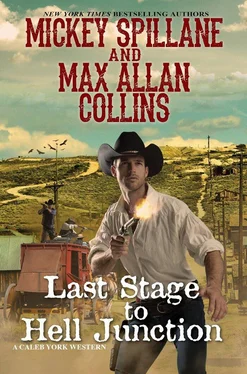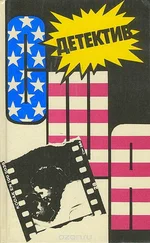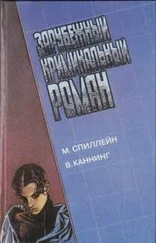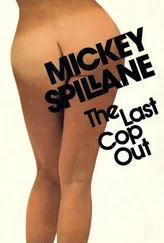York came out from behind the rock and, with less than ten feet separating them, told the Apache’s back, “Drop the knife, amigo. Hands up.”
The little man moved quicker than York had ever seen a human do, whipping around and throwing the blade at him, its whir carving the air.
But York was fast himself, batting the Bowie away with the .44 barrel, the steel of gun and knife clanging, and then the Indian was barreling toward him, like a charging animal, which is what he was, really, and when Broken Knife was almost on top of him, York slapped him alongside the face with the .44 barrel, hard.
The Indian, cheek slashed and bleeding, went down on the hard road surface, but was automatically pushing back up. Damnit, York didn’t want a gunshot ripping a hole in the morning, though ripping a hole in this savage he wouldn’t have minded. That hesitation on York’s part was just enough for the Indian to tackle him, taking him down, and York’s wrist hit a stone and the .44 went flying.
Then the Indian was on top of him, holding him down with a knee on the chest, the little man’s hands gripped as if in frantic prayer, lifting them high over his head to bring down on York’s face, a blow that the lawman knew would send the bones of his nose crashing into his brain and bringing on permanent darkness.
But in that fraction of a second, steel winked sunshine at him and from the corner of his eye he saw the Bowie knife waiting for someone to use it.
York did, grabbing the knife and shoving its blade deep into the little Apache’s side. The attacker straightened and his eyes opened wide with the knowledge that death was coming.
Withdrawing the blade, York bucked the smaller man off.
Wounded and hurting, Broken Knife nonetheless was getting to his feet when York said to himself, We’re not having that , and slipped behind the Apache and slit his throat, blood spraying the road and its rocky edge a glittering red, sunlight dancing on the scarlet wetness.
The geyser only lasted a few seconds, just long enough for the Apache’s heart to stop pumping and its owner to flop face forward onto the dirt.
York dragged the carcass off the road into the brush. Nothing could be done about the bloody roadside, but none of the outlaws were likely to see it, between now and what York had ahead of him.
The pinto, which wore a blanket, not a saddle, was stirring but not going anywhere. York slapped its backside, saying, “ Yah! Yah! ” and off it went, heading away from Hell Junction.
Lucky pinto.
He collected the .44, checked it over, finding nothing jarred or dented that might compromise the action. Finding the buckskin jacket confining, he pitched it into the woods, not caring that Parker’s ransom note went with it. Then he pushed through brush to the gelding and untied it. He climbed on and guided the animal to the road. The blood soaked in the dirt already was looking more black than red.
Heading back to Hell Junction at a trot, York worked at calming himself, slowing his breathing. Even Caleb York could get worked up and winded, dancing with a damn Indian wielding an Arkansas toothpick.
York was calm by the time he reached the dead city’s outskirts, and he guided the gelding off the road and brought it and himself up behind the buildings. He cut over to the street that bordered Main and headed for the livery stable. Once there, he dismounted and walked the gelding to the barn-style rear doors.
Sounds were coming from within — horses whinnying some and moving in place, the stagecoach’s lines and leaders and their metal work jangling. He expected this, but he drew the .44 nonetheless.
He went quickly in.
Jonathan Tulley, standing near the stagecoach, jumped in place and swung the scattergun toward York, who said, “Save it for the Hargrave bunch.”
Tulley frowned. “You look a mite messed up, Caleb York.”
“I had to kill an Indian.”
The deputy frowned. “They ain’t hostiles afoot, is they?” Then it came to him. “Oh! That Broken Knife feller.”
“Yeah. Him.”
“Ain’t he suppose to’ve survived the Little Big Horn?”
“So I’m told.”
Tulley cackled. “Well, he didn’t survive no ruckus with Caleb York, did he?”
“He did not. But right now I’m more concerned with Caleb York surviving a ruckus with the Hargrave gang.”
Tulley’s expression grew serious. “So when do we go?”
“We go right now.”
York checked Tulley’s work. The four Morgan horses were hitched up to the stagecoach just as they should be. York was pleasantly surprised. The stagecoach had been led into the livery stable, nose first; somehow Tulley had turned the vehicle around, before hitching up the Morgans, so that the coach and the animals were facing the street.
“Tulley, how did you manage this? There’s not room in here to swing the coach around. What did you do, drag it out the back?”
“Yessir.”
“But it must weigh a ton. How the hell—”
“She’s got wheels, ain’t she?”
He decided to leave it at that.
But this was good, because York had assumed they would have to exit the back and come around to Main by way of the adjacent street. This would be better. More sudden, and some speed could be worked up, whereas what he’d assumed they’d be doing would have required two turns, which would really slow the coach and the animals down.
“Tulley, you need help getting up on the box?” The “box” was the stagecoach driver’s seat.
“Hell no! Iffen I can turn this buggy aroun’ my own seff, I surely can get my tail up on the gol-durn thing!”
And the former desert rat did just that. It was a little like watching a squirrel climb a tree.
York tied the gelding onto the back of the coach. Tulley’s mule, Gert, was in a stall. She’d have to stay behind for now.
The deputy, shotgun in his lap, got the reins in hand. He looked down at a slightly astounded Caleb York and said, “’Fraid I ain’t gonna be much help where shootin’ is concerned. Got my hands full with these reins and horses.”
“I know. Shooting is my lookout. You know how those brakes work?”
“Shore do. Ready when you are, Sheriff.”
“You’re a good man, Jonathan Tulley. Did I ever tell you that?”
“Once or twict.”
York opened the front doors, and Tulley told the horses, “Git up! Git up!”
And he, and they, got.
But Tulley held back on the reins some. The coach was not to get up to full speed. Not yet.
Stagecoach and driver rumbled out of the livery stable, and York — .44 in hand — tucked behind the coach and ran along with it, holding on at the rear boot, with the gelding keeping pace.
The coach swung left and headed for the hotel.
They had a pick-up to make.
Several minutes before Caleb York and Jonathan Tulley began their short stagecoach ride from the livery stable to the Hell Junction Inn, Willa Cullen was inside the hotel, sitting with Rita Filley on the two-seater sofa by the boarded-up windows onto the street. To the right of the women, in the chair where he’d first been deposited in the parlor the day before, was Raymond Parker.
To Willa’s left, in a chair pulled over from a wall, sat a rumpled, frazzled-looking Doc Miller, who earlier had escorted Ben Bemis, the wounded gang member, into the dining salon for a parlay among the outlaws. Across from them, the glass-and-wood doors stood open to the dining room, where Hargrave was at the table closest to those open doors — possibly to better keep an eye on the hostages. Seated with him were Reese Randabaugh, Bemis, and the Mexican woman, Juanita.
A forlorn-looking Randy Randabaugh was at the next table, alone, sitting there slumped, in the same gray shirt with arm garters he’d worn flagging down the stage just yesterday, seeming a much nicer boy than he’d proved to be. The Wileys were either not invited to the party or were choosing to be somewhere else. Tension, after all, was running high.
Читать дальше





![Микки Спиллейн - Death of the Too-Cute Prostitute [= Man Alone]](/books/437201/mikki-spillejn-death-of-the-too-thumb.webp)